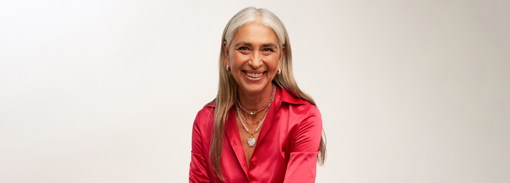
- Article published at:
Drawer menu
Raia—or “Coach Carey”—is a three-time-certified life coach, motivational speaker, and co-founder of Get Real, a charity that provides antiblack racism workshops, anti-bullying workshops, and LGBTQIA+ awareness workshops to schools, camps, and businesses. By openly sharing how she has overcome personal hardships, she creates a welcoming and safe environment for people to shift their mindset towards self-awareness, resilience, acceptance and sustainable success.
Why do you feel like your work is important?
It doesn't matter who you are, where you're from, what you look like, or how you identify—everyone is going to have ups and downs, and it's important for us to be able to be proactive about those ups and downs in life. Everyone can work on building their confidence from within.
"It doesn't matter who you are, where you're from, what you look like, or how you identify—everyone is going to have ups and downs..."

What’s something you wish someone talked to you more about when you were younger?
Mental health issues, body image issues, and how to build confidence. I've dedicated my work to helping people move through the same issues I’ve struggled with so they can build the confidence to go through life. We all need that. I wish I’d learned how to speak to myself, and about myself, because that plays a big role in how you show up in the world.
Growing up, I really never heard anyone talking about body image. For someone like me, who's masculine representing and identifies a little bit differently than just male or female, it would’ve been really helpful to learn that I'm not alone. It's beautiful to see that now there are those resources for young people.
But I think that would have really helped me to hear more people talking about the realm of mental health. When I was younger, I faced a lot of bullying. I hated school. I cried. I never wanted to be there. I think if I would have learned a bit more about how to regulate my emotions at that age, it would have helped a lot.

How did you get started doing this?
I started with really wanting to understand myself and others, which is why I majored in psychology. Psychology was a great way for me to gain insight on why people do the things they do. But I never saw myself represented in that field, whether it was case studies, or the work we were studying. So I thought, “How can I support myself and my communities if I don't see myself represented here?”
Given my background in psychology, life coaching seemed like a great fit. So, I went back to school for coaching when I was 27, and I really felt like I had to get back to the drawing board. I thought, “How can I support myself and support others?” Now I have three certifications in coaching, and I honestly can say that I love what I do so much.
"I wish I’d learned how to speak to myself, and about myself, because that plays a big role in how you show up in the world."
Can you share one of the hardest things to overcome in your work?
I love that people are getting more support, but what I find difficult in my space of life coaching is that there are a lot of people calling themselves life coaches that aren't certified, and that could be potentially harmful to someone who's looking to hire someone.

How are taboo topics about women's bodies, women's health, pregnancy and postpartum sex holding women back?
The two things that really get me fired up that I wish we talked about more are women's reproductive health and mental health. We need to be talking about these things.
I recently was in the hospital with a lot of cramps and pain. I had no idea what was going on. I wish these types of things were talked about more because then I could’ve been more proactive and preventative. The doctor thought I had a cyst on my ovaries. It turned out to be my fibroids. Luckily, I’m fine. I just wish that this was discussed or talked about more when I was younger.
"The two things that really get me fired up that I wish we talked about more are women's reproductive health and mental health. We need to be talking about these things."
What do we all stand to gain by connecting women to their power and inner strength?
When more women-identifying people have access to education and resources, I think the whole world stands to benefit. Historically, women-identifying people often put resources, money, and support back into the community, and back into young people. That’s how we continue to learn, grow, and share together. And I think our world could stand to use more women-identifying people in power, leadership, and support. When they have those resources and education, women-identifying people build their inner strength, their confidence, their morale, and it helps how they show up as leaders, partners, friends, and mothers.

What do you hope people walk away with after working with you?
The most rewarding part of my work is when my clients no longer need me and have the tools to truly do things on their own. I also love it when my clients have those “Aha” moments. Sometimes just a reframe, a shift in language, or a new perspective can have such a big impact on how someone feels about themselves. That gets me fired up.
Writing: Carter Selinger